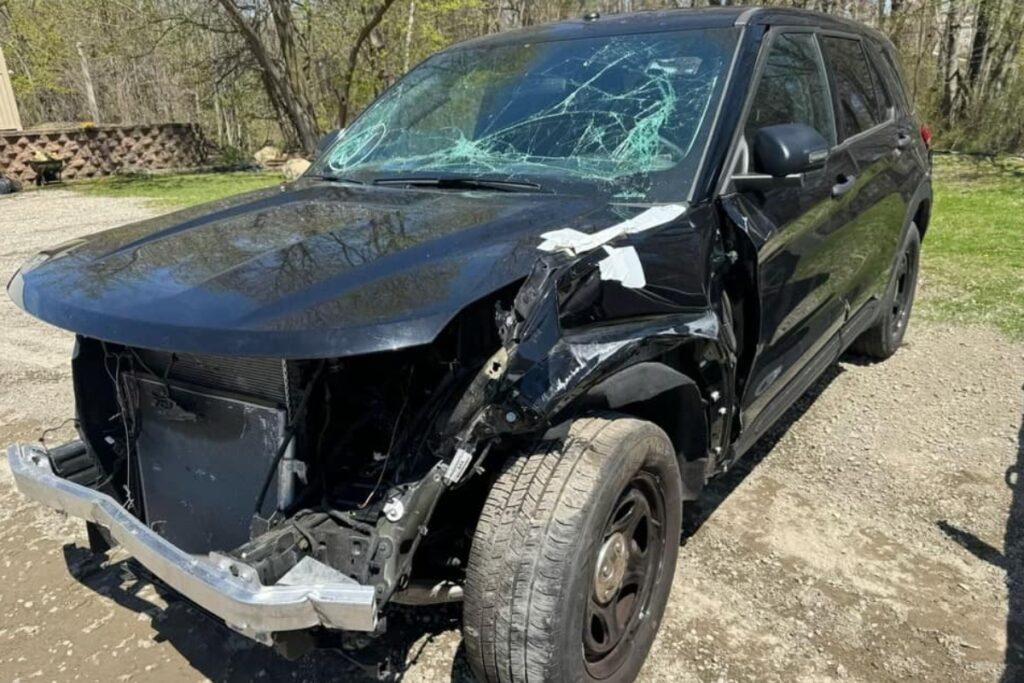
Princeton is a town where there typically aren’t any major changes to town rules and regulations, simply because everything is usually running smoothly already. As the old saying goes, “if it’s not broken, don’t fix it”. However, the world is changing faster than it was when that saying was coined, and we have a Planning Board whose job it is to ensure we adapt intelligently to changes that affect Princeton and its residents.
The Planning Board meeting on October 23, 2024 dealt with four important new zoning bylaw modifications, which will be voted on at the upcoming Special Town Meeting, on Wednesday, November 20. Jen and I attended this hearing and provide our informal synopsis here, as far as what was discussed.
This first zoning change, dealing apparently with a plethora of unregistered and junk vehicles in certain locations about town, isn’t particularly important on a global scale, but based on the degree of audience participation, it’s very important to the people who live near the offending junk cars. In this case, the main issue is how to enforce existing zoning. You already aren’t supposed to have your front lawn full of rusting cars that aren’t registered and haven’t moved in years, but what can the town do about it?
The current bylaw is that there can be no more than one unregistered vehicle, parked in the open, and it can sit there for no more than six consecutive months without moving. Junk vehicles are limited to thirty consecutive days in the open without moving. If any of these vehicles are not sitting in the driveway, they have to be at least 50 feet back from the owner’s property line. What constitutes a “junk vehicle” vs an unregistered vehicle is a fuzzy line, since a vehicle that doesn’t move is typically unregistered as well.
From the proposed bylaw:
“An unregistered motor vehicle is defined as any motor vehicle required to be registered by the laws of the Commonwealth of Massachusetts for operation on public ways and not so registered.
A junk motor vehicle is defined as any motor vehicle not capable of being operated on public ways because of its being damaged or dismantled or its not containing parts necessary for such operation, or any major part of such vehicle.”
The main problem with enforcement is the “consecutive” requirement. Who’s going to check? Princeton has one part time zoning enforcement officer, and he’d have to monitor the site constantly to see if anything moved, and be able to prove it.
The other big issue is that you can’t just walk on someone’s property and start checking their vehicles, and since “registered vehicles” are theoretically not junk vehicles, how do you know if the license plate on a vehicle sitting back behind a shady tree, 50+ feet from the road, has a valid license plate, rather than an old one from 1985? You’d have to come on the property.
Incidentally, this whole problem exists only if the vehicle is sitting in the open. If it and 20 other junkers are sitting in a barn, that’s fine. So, since Princeton isn’t the only town in the state with this issue, the Planning Board checked around and came up with a proposed amendment to the by-law. The gist of it is that the ‘consecutive’ days requirement is gone, but so is the ability to store more than one unregistered car in the open; and that unregistered vehicle must be either in a driveway or 50 feet back from the owner’s property line.
An exception is made for motorhomes, which might be taken off the road for a long period of time for legitimate reasons. Residents who do have in excess of one unregistered or junk car sitting around in their yard, have until June 30, 2026 to come into compliance. So, if you have a bunch of junk eyesore vehicles, you basically have 1½ years to get rid of the junk cars or build a barn to put them in.
At the public hearing, there was great interest in bringing in the compliance deadline to be sooner than the middle of 2026. I don’t know the date the Board settled on…or if they settled on one. It’s on the agenda for their next meeting.
The second bylaw change affects more residents, since most people in Princeton don’t have a junk yard at their home or within eyeshot. This next zoning change is courtesy of the Commonwealth of Massachusetts, which allows for (AKA requires) ADUs (Accessory Dwelling Units) on your property as a matter of right; and it removes the requirement for ‘owner occupancy’, which is a change as well to current zoning. According to the state, there is a housing crisis in Massachusetts, and allowing for more ADUs provides more affordable housing. The concern with this for Princeton is that we don’t want to change the essential character of the town, from a town where people own their own homes, to more of a rental town. However, it doesn’t seem to me this would be a likely outcome of this change.
What this means as a practical manner is that if you own a home in Princeton, and have a detached structure such as a barn or garage, you can, by right, turn that into a dwelling unit which you could then rent, to either your relatives or children, or just someone who needs a place to live. On the bright side this allows for using your property to create rental income, but keep in mind that just having the right to make a dwelling unit on your property doesn’t take care of title 5 requirements for a septic system, nor does it skirt any building code requirements. So as an example, we have a detached barn on our property. It already has electricity and water. However, it’s not remotely up to building code for dwelling units, and there is no connection to our septic system, so although it’s good to know we could make the barn livable and rentable, it’s by no means an inexpensive proposition.
Creating an ADU still must go through a site plan review, and the ADU itself can’t be an entirely new house on a single family lot. The ADU has to be a subordinate structure.
The next bylaw change seems like a good thing all around, and goes under the description of “Home Occupations”. Unobtrusive home occupations like a home office are already allowed by right, but this change will also allow short term rentals as a “home occupation”, so that Princeton residents can legally participate in the booming market for Airbnbs and the like, bed and breakfasts, and to be able to take in
boarders. The draft proposal restricts the number of days per year short term renters can be accommodated, and the number of rooms that can be used for boarders. I’m not sure why there are limits on these two income opportunities, so perhaps this is a question for town meeting.
As a personal example, we have relatives in California, and they manage to pay their mortgage based completely on their Airbnb income. Our area here is perfect for Airbnb type rentals, since there is great hiking in the summers, spectacular foliage in the fall, and skiing in the winter. Our guests in the area are now called ‘eco-tourists’, which is a hot vacation idea these days.
The last bylaw proposal concerns common driveways, which are somewhat common in Massachusetts, because it’s cheaper to have one driveway serving multiple homes. Basically, the new bylaw wants to create rules and enforce design criteria for NEW common driveways. There is no attempt here to make changes to existing common driveways, which I’m sure wouldn’t go over well. It should be clarified as to whether there are any requirements when selling a home, that the common driveway be brought up to code.
Reasons for the town wanting to have standards for common driveways are numerous, and include issues like access for emergency vehicles, safety concerns, plowing, and preserving the rural nature of the town. From my viewpoint, a big reason for this is simply that common driveways tend to cause problems, from who pays for the upkeep, to neighbor disputes. On the downside, creating stricter rules for common driveways could raise the cost of new homes that could have common driveways.
I have also heard the argument that common driveways reduce both construction costs and maintenance costs vs. multiple individual driveways. If the multiple driveways are long, a common driveway might help reduce connectivity costs to the power grid.
Want to learn more ahead of Special Town Meeting? Tuesday, November 12 at 10am. Town Buzz facilitates informal and friendly discussions between neighbors about local issues facing Princeton. A different topic is chosen for each session. Unregistered cars? Common Driveways? Home Occupations? ADUs? Come to Town Buzz and talk with Planning Board and Housing Committee members about possible zoning amendments. Location: Princeton Senior and Community Center, 206 Worcester Road, Princeton.
I encourage everyone attend the Special Town Meeting November 20, 2024 to learn more and express your opinions on these proposed zoning changes.



